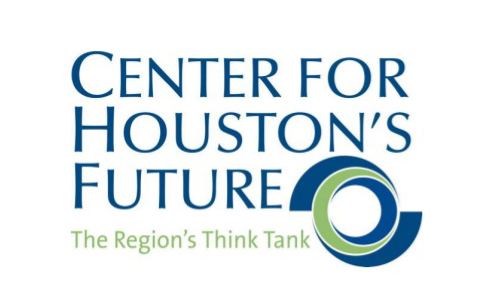 More than 40 percent of all jobs in the Houston region will be held by immigrants in the next two decades, per a study from the Center for Houston’s Future focused on the economic realities of what the immigrant workforce means for Southeast Texas.
More than 40 percent of all jobs in the Houston region will be held by immigrants in the next two decades, per a study from the Center for Houston’s Future focused on the economic realities of what the immigrant workforce means for Southeast Texas.
“These issues are so important to our continued business operations,” said Steven Scarborough, Manager of Strategic Initiatives at the Center. He was interviewed by documentary filmmaker Gregory Kallenberg on the latest edition of the Rational Middle podcast released this past week. "We focus on long term issues that are of the highest importance," Scarborough told Kallenberg.
The Center's study, released earlier this year, puts a spotlight on the role highly-skilled immigrants play in Houston’s workforce. And the numbers are striking: Immigrants make up 42 percent of doctors, 43 percent of scientists, and 42 percent of petroleum engineers.
Immigrants will drive employment growth in Houston in the coming years, in part, because native-born workers are not having as many children as they used to. In the year 2036, immigrants will make up 43 percent of Houston’s workforce compared to roughly 30 percent two decades earlier in 2016.
The study also looked at three possible public policy scenarios and what each would mean for the Houston region’s economy:
- If immigration was decreased by 30 percent, Houston would lose $51 billion in GDP.
- If all undocumented immigrants were deported, Houston would lose $36 billion in GDP.
- If immigration was increased by 30 percent, Houston’s economy would gain $67 billion in GDP.
You can read the full study here.
Even though those scenarios point to strong economic benefits of immigration, Scarborough pointed out to Kallenberg that “it’s not just businesses that are saying immigration is really important.”
“There’s been a sea change in public opinion in Houston,” Scarborough said. Pointing to the Rice University survey of Houstonians that’s been done for decades, Scarborough noted attitudes about immigration have shifted dramatically in the last quarter-century.
In the 90s, that survey showed as much as 60 percent opposition to immigration among Houstonians when they were asked whether immigrants have a positive or negative impact on the region’s economy and culture.
“Fast forward 25 years later, it’s the exact opposite,” Scarborough said. Nearly 70 percent of Houstonians now say immigration is positive for the culture and economy. Scarborough said gay marriage is the only other public policy question he can think of that has seen as significant a change in attitudes in such a short period of time.
“That’s the ethic in Houston. It’s not just in the business community,” Scarborough said. “You go throughout the city and the region and everyone is working off the same page,” he said. “We’re a city of immigrants.”
Scarborough predicted that there will be an inflection point in Washington – sooner rather than later – when immigration reform is on the agenda and has a real shot at passage in Congress.
“We want to be prepared for when that happens,” Scarborough said, adding that the business round table discussions being held now focused on the study's findings are aimed at laying the groundwork for the opportunity to speak with one voice when policymakers are ready to listen. “When the moment is right, when immigration reform is going to happen, we’ll be ready for it,” Scarborough said.
You can listen to the full podcast by clicking here.


